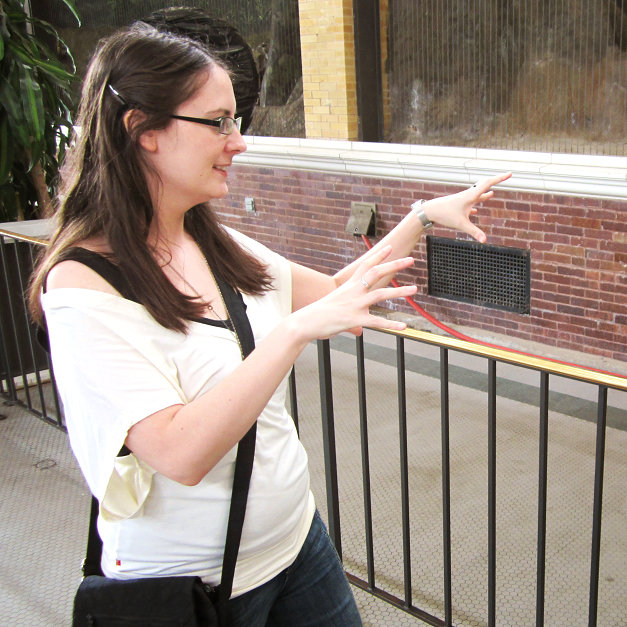At first I thought this was about the Pebble smart watch from 2012. Pretty confused how that becomes a Mastadon instance.
The founder of that pebble is now heading a matrix-derived decentralized chat service called beeper so it’s not too far from the truth :)
I love how weird the Internet can be
I use Beeper and it’s actually pretty good
I’m not surprised. They hired the developer of all the major chat protocol bridges.
I use the big self hosted ansible playbook more for privacy reasons (self hosting everything) but I know it’s good! I like their client also but it’s not open source I think.
I happened to notice an ex-Pebble user in my feed asking for Mastodon help, a couple weeks back. Had never heard of it, but I did some digging, found there was a whole group of them wandering around lost and confused, so reached out and welcomed them and offered help. Honestly they’re very nice people, it seems like Pebble’s whole “thing” was a focus on people being cool to each other so attracted that certain sort of user.
Proud to say I was nominated first post-Pebble member of Pebble club 😎
Lol that sounds so cute
Sounds like Beehaw =)
Without the part where they pull up the drawbridge behind them, hopefully.
In its own small way, the story exemplifies just how much of a fracturing is happening right now outside of the ordinary corporation siloed ideas around social media. People are moving around and relatively freely.
Which is hopefully a pretty good sign for the idea of the fediverse and open protocols in general.
I’d say it’s a big maybe on the protocol side of things.
In general it’s an affirmation of the power of open source software to grow and change things, which we’ve seen before. Mastodon was lying there ready as a more or less plug and play platform. That’s powerful in a moment looking for alternative platforms.
Mastodon’s success IMO isn’t necessarily a success for or an indication of success for ActivityHub. At most, I’d say, it attracts more attention to the idea of open platforms and decentralised social web infrastructure. But the specific protocol being used, AP, isn’t really a big part of the picture, and might just be the weakest aspect of the current fediverse story.
To illustrate, pebble chose not to federate their original platform because the task was too hard. Ask developers and they’ll tell how true this is. So it seems false to say that the protocol on its own is making open and decentralised social media happen. The heavy lifting is coming from the software devs making platform software.
I had an account there. I never used, but I posted a few times just to see what it looked like.
The UI wasn’t bad, and if they have any resources left they should repurpose that UI on top of Mastodon.
They did, or at least made a theme for it.
How would you make money as a mastodon instance? Pay to be a member? I don’t see the incentive for the average user to pay when it’s so easy to join a free instance (I’m considering the average person doesn’t know how to host their own).
The incentive might become more apparent as time goes on.
- long term up-time commitments
- stability guarantees
- dedicated Moderation services
- dedicated help service
- performance guarantees
- additional features or parallel services beyond ordinary masto (eg search, blogging, feed sorting/algorithms, or even fusion of additional platforms like lemmy)
- active sponsorship of developers contributing back to masto
- subscription is part of a dedicated app too (see, eg, Mammoth)
As a Mastodon subscriber on a typical server, I haven’t found any of that to be particularly necessary. Perhaps there are some advanced users who might find it useful though. 
Interesting. I feel like long term stability, up time and performance would be valuable to many users. In many ways I’d say just going on to mastodon.social is a bit of a cop out as it heavily dilutes the decentralised structure that is arguably the point of all of this. Multiple paid instances would be healthier. And there, as a user on a relatively peripheral instance but one that is paid-for, longevity and stability become increasingly valuable.
Otherwise, instance providers putting the work into trying to provide a relatively “complete” fediverse palette of tools while making it as easy as possible for the users could also be interesting.
What I mean is that long-term stability and up time don’t seem to be a problem for current servers.
It’s definitely an issue with small, niche servers unfortunately. Had a friend’s just go down unexpectedly this week with no warning to let the handful of people on there migrate, so they’re starting over from scratch. My craft server shut down a couple weeks ago although we did get a month warning there so could go through the proper migration process.
I try and donate to all my Fedi servers just to make it worth the admin’s while, because I prefer smaller servers in general but don’t want them to suddenly disappear!
Yea I’d say it isn’t a problem for anyone until it is. All of the notable examples of a server going down that I’ve seen were a surprise to its users. On top of that, I’d expect many have fairly hefty expectations of their server’s longevity. Like 10-15 years, more or less as long as they’ve been using Twitter etc.
You could probably trust that an instance you’re paying for will be more stable/less likely to randomly shut down.
Tried to take on twitter? So they basically just made a bunch of elon shitposts? It seems vey easy to beat twitter at virtually anything










